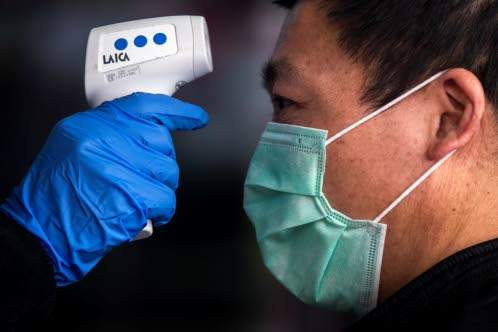WASHINGTON, DC, United States (AP) — Scientists yesterday announced the first effective treatment against the novel coronavirus — an experimental drug that can expedite the recovery of COVID-19 patients — in a major medical advance that came as the economic gloom caused by the scourge deepened across the world.
The US Government said it is working to make the antiviral medication remdesivir available to patients as quickly as possible. Stocks surged around the world on the news, with the Dow Jones Industrial average climbing more than 550 points, or over two per cent, in the afternoon.
“What it has proven is that a drug can block this virus,” said Dr Anthony Fauci, the US Government’s top infectious disease expert. “This will be the standard of care.”
The news came as the US Government reported that American output is shrinking at an alarming rate in the biggest and fastest collapse since the Great Depression. The virus has killed more than 220,000 people worldwide since December, including about 60,000 confirmed deaths in the US, and led to lockdowns and other restrictions that have closed factories and other businesses around the world.
Amid the shutdowns, the US said its gross domestic product (GDP), or output of goods and services, shrank at an annual rate of 4.8 per cent in the January-March period, the sharpest quarterly drop since the global financial meltdown of more than a decade ago.
And the worst is yet to come: The Congressional Budget Office has estimated that the GDP of the world’s biggest economy will plunge at a 40 per cent annual rate during the three-month period that ends in June.
The latest figures on people applying for unemployment benefits in the US come out today, with economists estimating perhaps one in six American workers, or about 30 million people, have lost their jobs over the past six weeks.
The US unemployment rate for April will be released at the end of next week, and economists have forecast that it could range as high as 20 per cent — a level not seen since the Depression.
Mario Franco, who worked at a McDonald’s at a rest stop along Interstate 95 in Darien, Connecticut, for 26 years, rising to night manager in charge of the kitchen staff, was laid off in late March. The 50-year-old said he has little savings and now relies on a food bank and union donations.
“They didn’t give us any notice,” he said through an interpreter. “They didn’t tell us about it. Just suddenly the night shift ended and that was it. There was no more work.”
Confirmed infections globally reached more than 3.2 million, including one million in the US, according to a tally by Johns Hopkins University. The true numbers of deaths and infections are believed to be much higher because of limited testing, differences in counting the dead, and concealment by some governments.
Biotech company Gilead Sciences and the US Government reported that in a major study, remdesivir shortened the time it takes for COVID-19 patients to recover by four days on average — from 15 days to 11. Also, a trend toward fewer deaths was seen among those on the drug, Fauci said.
The study was run by the US National Institutes of Health and involved 1,063 hospitalised coronavirus patients around the world.
An effective treatment could have a profound effect on the outbreak, since a vaccine is probably a year or more away.
Economic damage, meanwhile, is piling up everywhere around the world.
Globally, the United Nations’ main labour body raised its prediction of full-time-equivalent job losses in the second quarter to an estimated 305 million.
It also projected that 1.6 billion workers in the “informal economy”, including those working without proper contracts or oversight by government regulation, “stand in immediate danger of having their livelihoods destroyed”. That is nearly half the global workforce of 3.3 billion people.










